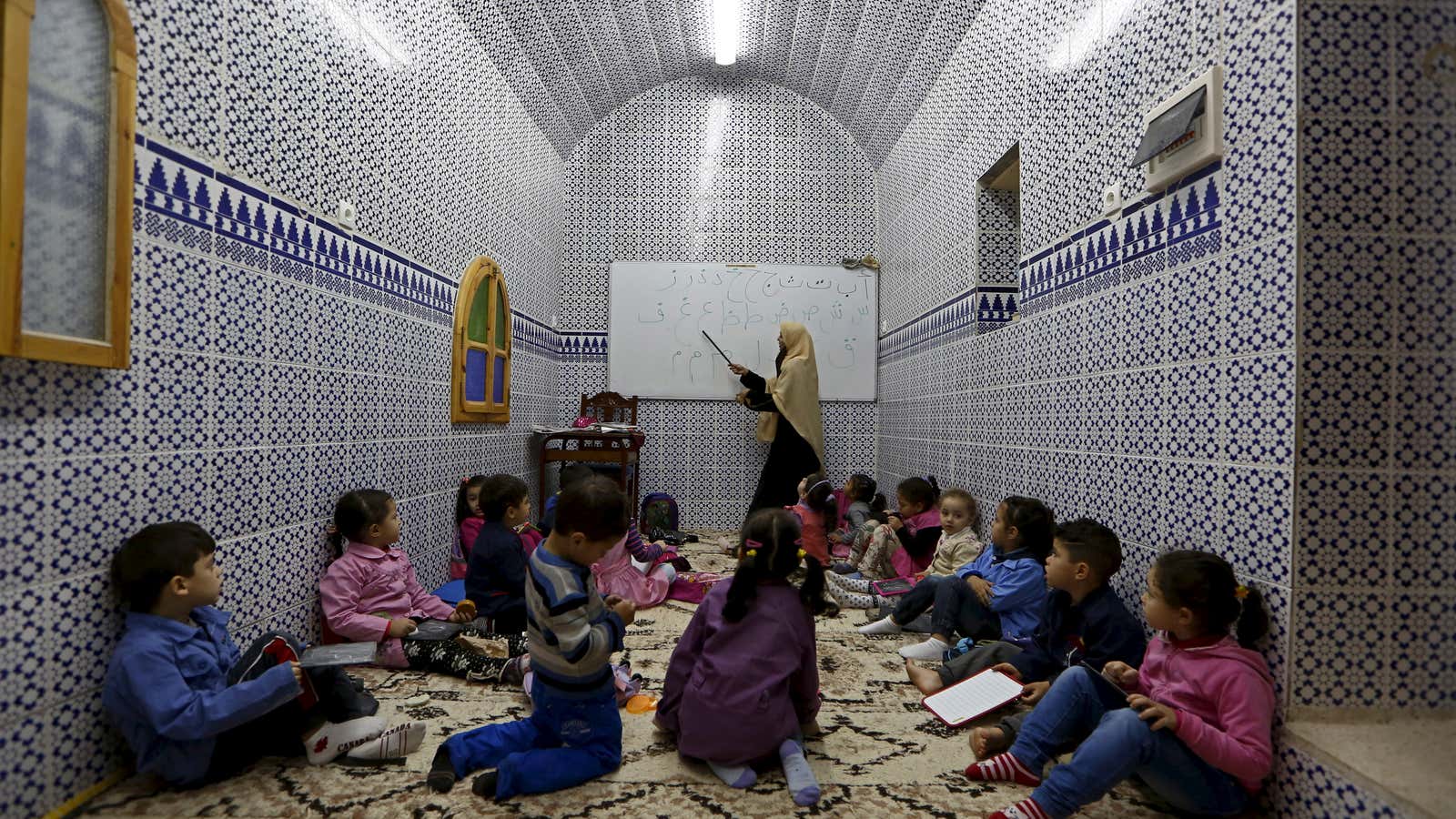When Sabah Boudras started streaming live from her classroom, she didn’t know that the exchange with her young students would spark a national conversation about language and identity in Algeria. The primary school teacher from Batna city, located 450 kilometers east of the capital Algiers, recorded herself via Facebook Live (video in Arabic) talking to students about the importance of the Arabic language.
It was the beginning of the school year, and Boudras was telling the young students how they were going to use only Arabic in her primary school class. As she made the statements, the students gathered around her, repeating and completing her sentences.
“Arabic is one of the richest languages in the world,” Boudras said. “This year, my language will be Arabic, and we will not express ourselves except in Arabic.”
Boudras’s video elicited a response from Nouria Benghebrit, the country’s education minister. Speaking during a press conference, Benghebrit called the video a “disaster,” criticizing the teacher for recording the children and turning her back to them. Benghebrit said she’ll open an investigation, and if the incident proves accurate, the teacher will face a “disciplinary council.”
The minister’s criticism of the teacher’s actions turned the conversation among Algerians towards language use in the classroom – especially given that the teacher was talking in Arabic and the minister in French. The criticism soon traveled throughout social media outlets, creating a controversy (link in Arabic) in the North African nation, and showcasing the delicate place of language in Algerian society
Arabic is the official language of Algeria, but the country’s colonial relationship with France still underscores what best expresses modern Algerian identity. Many Algerians speak colloquial Arabic that mixes Algerian dialect and French (pdf, p. 10.) The government also recently recognized the Amazigh language, spoken by the indigenous Berber population, as an official language.
The dissonance over what language to use is also prevalent in the education system. Just last month, the government suggested plans to teach science and math in French in schools, saying it could improve on students’ results. Universities in the country teach science in French, in contrast to the schools who teach it in Arabic. And last year, minister Benghebrit suggested the use of dialectical Arabic in grades one and two, in contrast to standard, classical Arabic. Both measures were met with resistance from the public, who raised arguments about the role of language in upholding Algeria’s cultural identity.
More than anything, Boudras’s video has become the latest symbol representing the divide amongst Algerians over the direction of their country. Analysts and newspaper editorials (in Arabic) didn’t fail to notice how Benghebrit and Boudras embody two different and clashing paths: a Francophile, cabinet minister using the traditional space of press conferences and television, to scold an Arabophile town teacher, using the new tools of technology to spread her message.
Parents of the students who appeared on the video came out to support the teacher, lauding her efforts to instruct the children in Arabic. More teachers and students across the country also recorded similar videos and posted photos on Facebook and Twitter to show solidarity with Boudras. And on social media, users from across the Arab world joined in on the debate, backing the teacher’s decision under the hash tag: We are all Boudras.
